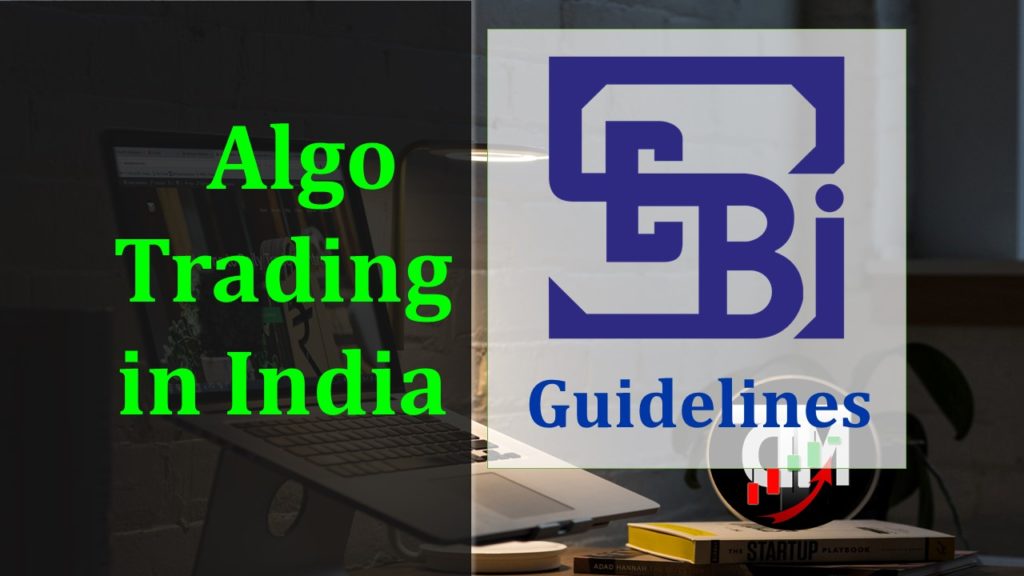Algorithmic Trading & SEBI
Before we discuss about the SEBI guidelines for Algo trade in India, let us first try to understand what is Algo trading. Algorithmic trading is a process of executing a trade using automated computer based program consists of trading instructions. They were developed so that traders do not need to constantly watch a stock and send the order manually. Is’t that exciting? If this excites you then please read below details to understand how it works.
Setting up an Algo system: Setting up a strategy is the most important for any algo trade. The strategy can be developed by an expert trader, who knows technical analysis, understand market very well, can plan market direction based on his/her market study. Once we have a plan or a strategy in place, then that plan need to be converted into an executable program by an expert programmer who knows mathematical models, understands different mathematical functions and their usage. Once the strategy is developed and tested then it becomes a full proof strategy to run in real market.
Benefits of Algo Trading: Algo trading has its many benefits and few drawbacks too. Algo systems shall run by computer programs (Amibroker, MT4, Python, Excel, C# etc.) which generates Buy and Sell signal automatically based on the condition mentioned in the program. Slippage is the major problem in execution. Slippage is the difference, where the Buy or Sell price triggered by the program and actual Buy and Sell price differs due to execution delay or low volume or high volatility. The benefit is, there is no human emotion involved in trading, hence the system always performs the same way each time as per pre defined logic. Entry and Exit is always pre defined and planned, no emotional interference can change it. A properly designed Algo strategy shall always become a winner if it has a good Risk vs reward ratio.
Now a days almost all Brokers allow Algo trading in their trading terminal. To execute your algo signals you need Robo tool to facilitate the bridging between the charting software/Algo system and Broker terminal.
Robo trading is relatively new in India but there are many Algo Trading service providers available. Some are providing their services with different marketplaes and few service provider has their own strategy marketplace. One such Marketplace is DTMAlgo, where we provide Amibroker based Algo BOTs with Auto execution into clients trading Terminal. Our Robo is integrated with AliceBlue, Mastertrust and IIFL.
Retail Trader & Algo Trading: For retail traders there is no restriction in Algo trading if the Algo trading is facilitated by their respective brokers. The trading is triggered via API connectivity between the signals and Trading terminals.
Algo service provider company does the connectivity between the Algo signals and broker terminals via APIs.
NSE offers facility to its trading members to use front-end software to trade on the NSE trading system. This facility called Computer-to-Computer Link (CTCL) facility is available only to trading members of NSE.
Few Regulation guidelines for Members are mentioned below. Retail Traders can ignore these below guidelines.
- Any order that is generated by automatic execution logic shall be considered as algorithmic trading.
- The commodity and exchange shall have arrange and infrastructure to accommodate the load on their system to achieve consistence response to all members.
- Exchange system should be upgraded on a regular basis, to maintain the 4 time capacity of the peak order load encountered.
- Algorithms should not fall in any loop in any circumstances
- For Audit purpose member may need to share the Strategy with SEBI
- Prior Approval from Exchange is required by any member before implementing any algorithmic trading
- The Member should have real time monitoring system to identify the algorithms not working as expected
The Approval Process:
- Orders of clients should entered through Member server only, no client order can be placed directly in Exchange
- The Algorithm which will take away liquidity away from the market will not be approved
- Co-location and Co-Hosting will not be allowed
Order to Trade Ratio: Is the ratio of total volume of all posted orders to the number of orders filled. A ratio of 50 indicates only half of the total orders got filled and the rest remained pending or got cancelled/rejected.
There is a pre defined OTR allowable limit per member and the penalty clause by SEBI.
- Up to 50 , NIL, 50 to 250 1 Paise per order, 250 to 500 5 paise per order and more than 500 5 Paise.
- If the Order to Trade ratio is more than 500 during any trading day, then the next trading day the member can not place any order in the first 15 minutes
- All orders related to its Entry, modification and cancellation shall be included as an individual order to calculate Order to Trade ratio
- Any order placed within 1% of the Last Traded Price shall not be considered under Order to Trade Ratio
- Penalty will be applicable on the members who have placed more than 10,000 orders in a day
- No more than 20 order can be placed by any CTCL ID within a second, i.e. within any 5 second, not more than 100 orders can be placed by single member















